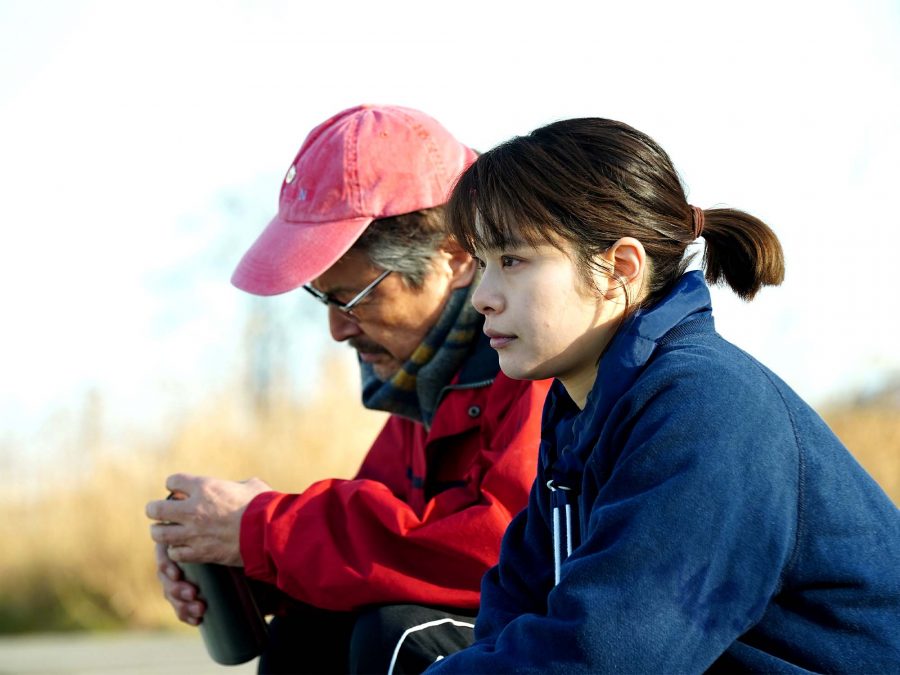A few years back, Darius Marder’s Sound of Metal depicted the difficult adjustment of a drummer to life without hearing, leaving behind an artistic field so dependent on sound and sight working together in unison. A more modest offering in many respects, though similarly striking with its own amplified sound design and near-total lack of music, Japanese drama Small, Slow but Steady presents something of an athletic counterpart to that American movie: the story of someone born with a hearing impairment, operating within a sporting field where deafness might seem an inherent impediment to participation.
Director Shô Miyake’s calm and collected film is rooted in some truth. It’s loosely based on ‘Makenaide’, the autobiography of Keiko Ogasawara, the first hearing-impaired professional woman boxer in Japan. One might expect the film to be a fairly standard adaptation of the book, but crucial artistic licenses are taken right off the bat. One is that the main character, beautifully played by Yukino Kishii, is more of a fictionalised stand-in for Ogasawara, instead named Keiko Ogawa in early onscreen text. The other key change is that Keiko’s story has been moved to the COVID era, the film beginning in Tokyo in December 2020.
The explicit pandemic-era setting could plausibly have been, in part, to minimise the shoot’s cast and also avoid fussing with accurate period details. But the script is smart about incorporating the pandemic on plotting and emotional levels. Given that Keiko has no hearing in either ear, she’s reliant on reading lips to understand most people. As such, this period presents new obstacles when navigating public spaces.

One such memorable encounter comes at night when ostensibly well-meaning policemen stop this young woman lingering on her own in an isolated area. She has prominent wounds on her face from a very recent boxing match, but they think she’s been attacked. Keiko is able to explain as best she can, but the cops, following public health guidance, never remove their face masks to allow her to decipher what they’re saying.
Elsewhere, restrictions on gatherings make for a particularly absorbing fight with almost no spectators, while the pandemic’s decimation of small businesses plays a part in Keiko’s gym’s likely closure. Free of traditional sports biopic trappings, the drama instead concerns Keiko’s wavering mental health and confidence in figuring out why to continue fighting at all, especially as external factors intensify the temptation to quit.
Speaking on Keiko’s burgeoning success, the gym’s chairman (Tomokazu Miura) posits that she’s able to overcome her “dangerous” disadvantage in the ring thanks to her intently watching eyes. And much of the pleasure of this film comes from us doing the same towards Keiko. Cinematographer Yûta Tsukinaga’s tactile 16mm work consistently frames Kishii as Keiko in such ways as to always perfectly document every gradual change in her eyes and face. You can fully understand her developing melancholy even while she never articulates it to loved ones. The approach also means her rare beaming smiles deliver knockout hits to the heart.
Little White Lies is committed to championing great movies and the talented people who make them.
ANTICIPATION.
A recent Best Actress winner at the Japanese Academy Awards. 4
ENJOYMENT.
As beautifully understated as the title suggests, and it looks gorgeous. 4
IN RETROSPECT.
A touching sports drama about the here-and-now, rather than victories or defeats. 4
Directed by
Shô Miyake
Starring
Yukino Kishii, Masaki Miura, Shinichirô Matsuura
The post Small, Slow but Steady appeared first on Little White Lies.


0 Comments